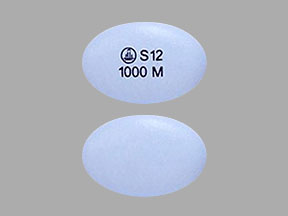
Synjardy Xr Coupons & Savings Card – Discount Prices from $350.63
My prescription
Edit
12.5-1000MG, Synjardy Xr (60 Tablet Extended Release 24 Hours)
Select pharmacy

CVS
$369.20
COUPON PRICE
Albertsons
$350.63
COUPON PRICE
Walgreens
$365.40
COUPON PRICE
Walmart
$368.70
COUPON PRICESynjardy Xr savings card
Show this card to your pharmacist
Albertsons
$350.63
BIN
ID
PCN
GRP
019876
LH19E86142
CHIPPO
LHX
Powered by
More prescriptions for diabetes type 2
More prescriptions for diabetes type 2
Price history for Synjardy Xr
60 Tablet Extended Release 24 Hours, 12.5-1000MG
Average retail price for Synjardy Xr
Average SaveHealth price for Synjardy Xr
Our price history data is based on aggregated prescription data collected from participating pharmacies in America. Our prescription data updates daily to reflect the latest price changes. If you notice a missing data point, it means there wasn't sufficient data available to generate a monetary value for that date.
*Retail prices are based on pharmacy claims data, and may not be accurate when we don't have enough claims.
Synjardy Xr dosage forms
Dosage Quantity Price from Per unit 5-1000MG 60 Tablet Extended Release 24 Hours $351.61 $5.86 5-1000MG 180 Tablet Extended Release 24 Hours $1024.83 $5.69 10-1000MG 30 Tablet Extended Release 24 Hours $351.45 $11.71 10-1000MG 90 Tablet Extended Release 24 Hours $1024.34 $11.38 12.5-1000MG 60 Tablet Extended Release 24 Hours $350.63 $5.84 12.5-1000MG 180 Tablet Extended Release 24 Hours $1021.89 $5.68 25-1000MG 30 Tablet Extended Release 24 Hours $351.11 $11.70 25-1000MG 90 Tablet Extended Release 24 Hours $1023.34 $11.37
| Dosage | Quantity | Price from | Per unit |
|---|---|---|---|
| 5-1000MG | 60 Tablet Extended Release 24 Hours | $351.61 | $5.86 |
| 5-1000MG | 180 Tablet Extended Release 24 Hours | $1024.83 | $5.69 |
| 10-1000MG | 30 Tablet Extended Release 24 Hours | $351.45 | $11.71 |
| 10-1000MG | 90 Tablet Extended Release 24 Hours | $1024.34 | $11.38 |
| 12.5-1000MG | 60 Tablet Extended Release 24 Hours | $350.63 | $5.84 |
| 12.5-1000MG | 180 Tablet Extended Release 24 Hours | $1021.89 | $5.68 |
| 25-1000MG | 30 Tablet Extended Release 24 Hours | $351.11 | $11.70 |
| 25-1000MG | 90 Tablet Extended Release 24 Hours | $1023.34 | $11.37 |
What is the drug Synjardy XR used for?
Synjardy XR is used to improve blood sugar control in adults with type 2 diabetes. It is typically prescribed alongside diet and exercise to help manage the condition.
Is Synjardy the same as metformin?
Synjardy is not the same as metformin. Synjardy is a combination medication that contains two active ingredients: empagliflozin and metformin. Metformin is one of the components of Synjardy, but Synjardy also includes empagliflozin, which is a different type of medication used to help control blood sugar levels in individuals with type 2 diabetes.
Does Synjardy XR cause weight loss?
Synjardy XR, which contains empagliflozin and metformin, may lead to weight loss in some individuals. Empagliflozin, a component of Synjardy XR, is known to potentially cause weight loss as a side effect. However, weight changes can vary from person to person, and it is important to discuss any concerns with a healthcare provider.
Is Synjardy XR better than metformin?
The choice between Synjardy XR and metformin depends on the individual's specific medical condition, treatment goals, and how they respond to each medication. Synjardy XR is a combination of empagliflozin and metformin, which may offer additional benefits for some patients, such as improved blood sugar control and potential cardiovascular benefits. However, metformin is often the first-line treatment for type 2 diabetes due to its effectiveness, safety profile, and cost. A healthcare provider should evaluate the patient's health status and treatment needs to determine the most appropriate medication.
